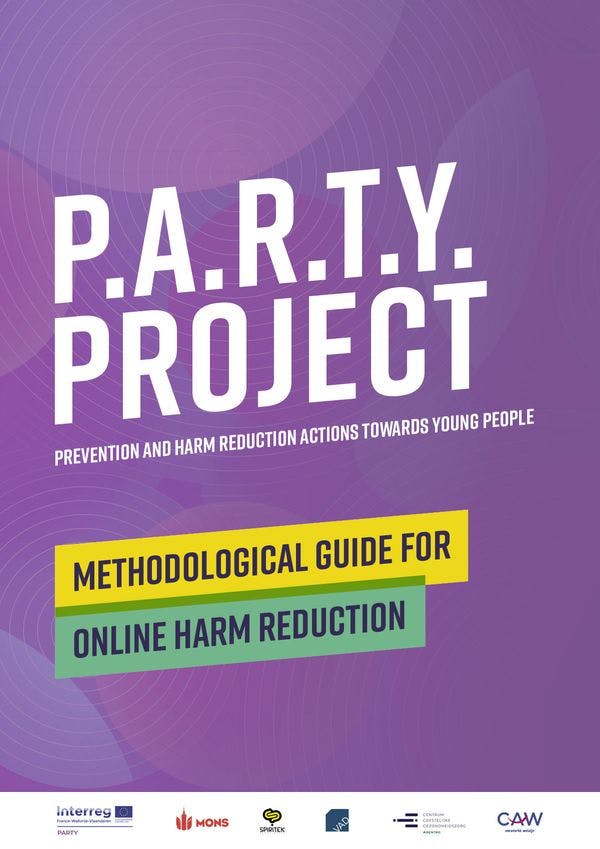P.A.R.T.Y. Project - Methodological guide for online harm reduction
The PARTY project, which brings together Belgian and French operators working within Harm Reduction (HR), aims to increase responsibility among the cross-border public (online and on the PARTY scene) by facilitating access to prevention and HR tools. The project also aims to improve the context by training those involved in the PARTY scene and by making them aware of their responsibilities (via the Quality Nights, Quality Events and Quality Bar labels).
The PARTY project is broken down into six work modules. The first module concerns project management and the second one is about communications. The modules relating to this methodological guide are modules 3 and 4. Module 3 deals with “research and development of the methodology”. Module 4, which we will explain throughout this guide, is about “Online Harm Reduction”.
The 5th module is dedicated to encouraging responsibility among actors in festive places through the development of Quality Nights labels. This module is also intended for interventions on the ground and in festive environments. They bring together professionals and jobistes/ volunteers who work in festive environments such as: festivals, nightclubs, bars, concert halls, etc. via the installation of a risk prevention and Harm Reduction stand.
With the emergence of social networks, several studies show a growing use of the Internet. Young people are the main users. With regards to the use of drugs, the Internet has become a popular, easily accessible space (where users can remain anonymous) for getting information about illicit and stigmatised types of behaviour and even for buying drugs. In addition, the availability of online studies, information and advice have evolved considerably.
Now, anyone can talk online with a professional specialist, look up information or discuss issues with a group of peers without leaving their home. However, the question remains as to how we can separate objective (“scientifically validated”) information from subjective information (such as personal experiences).
On forums such as “Doctissimo”, you can find genuine cries for help from people who are unable to find valid and relevant information. Generally, the Internet users who are active on these types of forums do not have any scientific basis to support their posts. Hence, there is a need to apply new forms of action as a way to make contact with them and answer their questions.
Our methodology is based on the concept of reaching out to people. Thus, the E-volunteers we have recruited actively reach out to meet users and do not just wait for them. The E-volunteers offer assistance, advice, accurate information and guidance on where to find other tools and services if necessary.
This is why the project team selects the E-volunteers (based on specific requirements) and provides training for them to become an “E-volunteer”.
As per the project’s indicators, 35 E-volunteers need to be trained. E-volunteers are trained in their native language (French or Dutch) by the operators.
The aim is to respond to 50 messages within two years.
